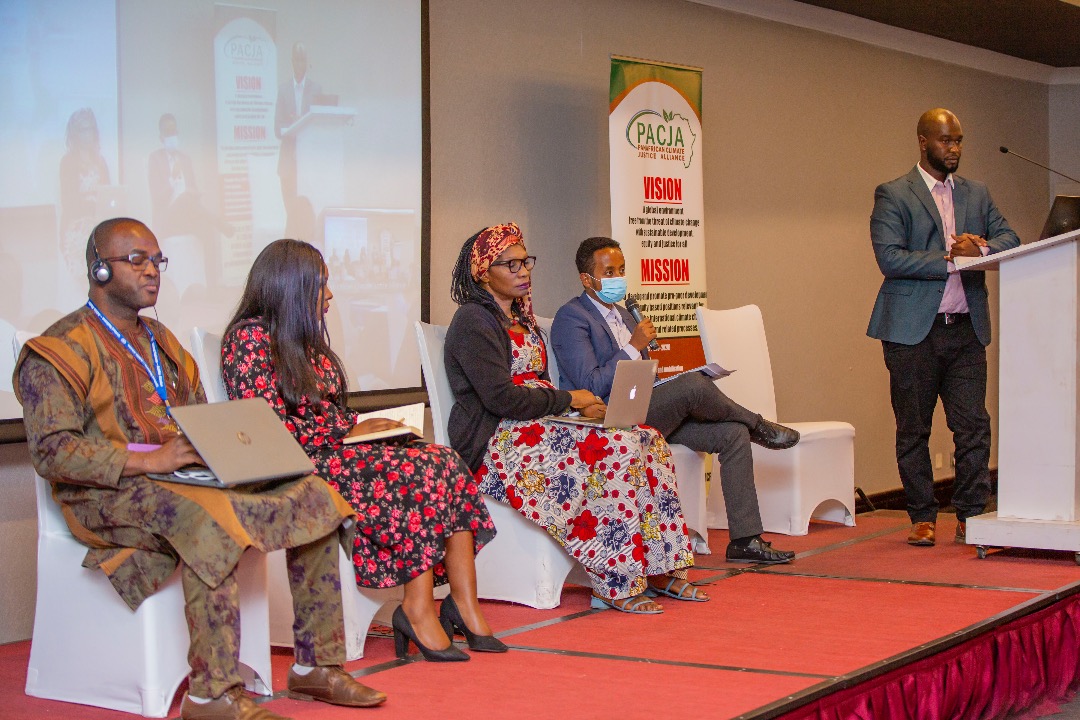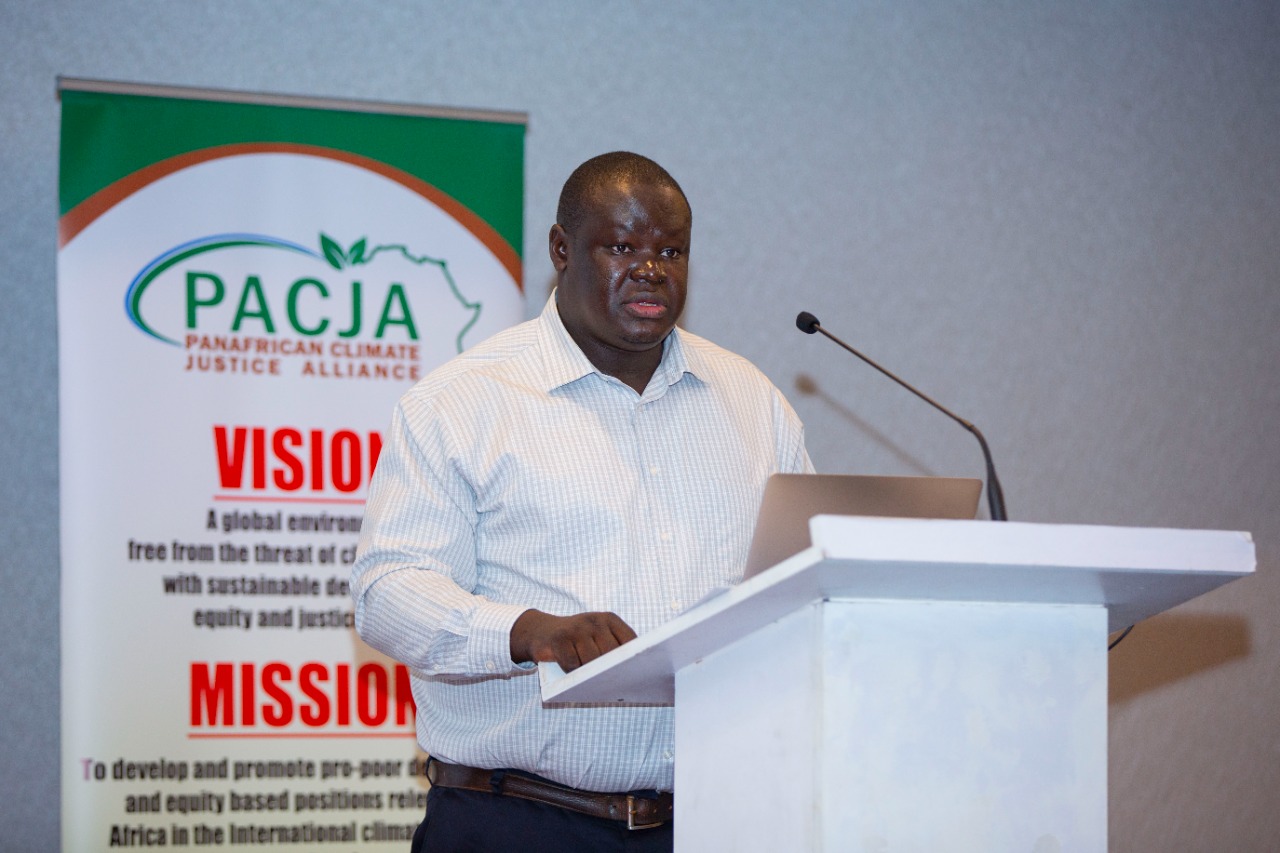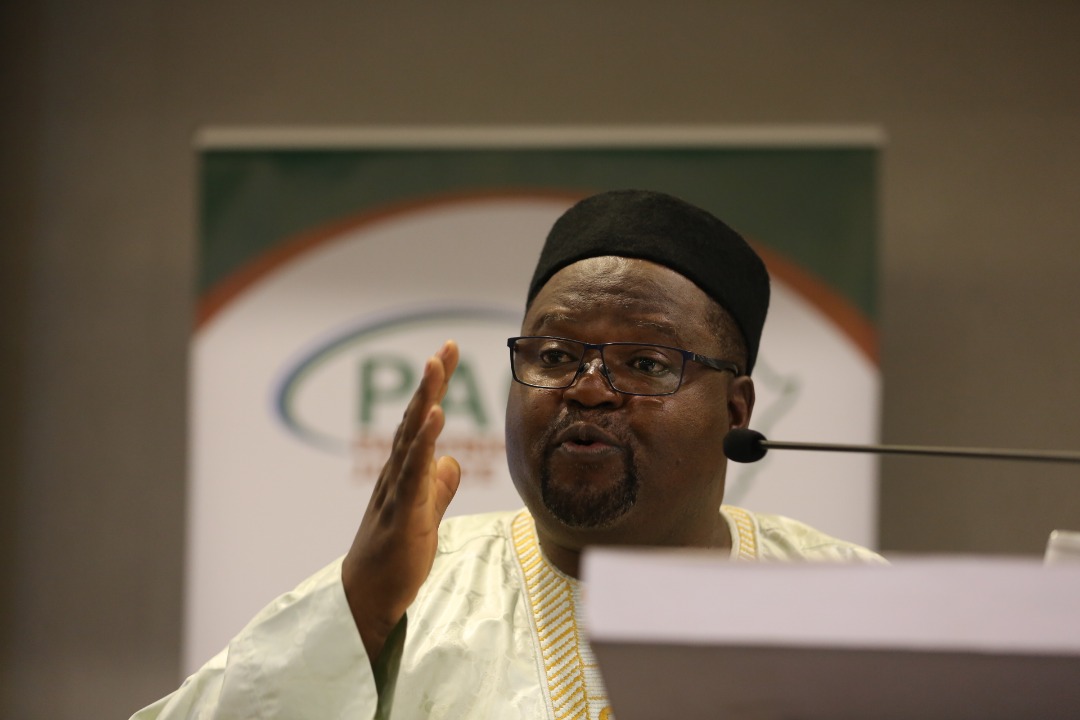
By Jiata Ekele
A pan-African climate advocacy network and its sub-regional members have annunciated the global climate crisis as the root cause of underlying conflicts and insecurity issues, especially in the Black continent.
This was made known during an African Regional Dialogue on Climate Security in Kigali, Rwanda, on the sidelines of the ongoing eighth African Regional Forum on Sustainable Development (ARFSD).
The groups further “underlined the fact that in Africa most natural resource-based economies suffer from intricate and multi-layered stresses and structural vulnerabilities such as demographic pressure in the context of shrinking livelihood opportunities, lack of employment opportunities, over-dependence on rain-fed agriculture and pastoralism that consequently creates competition for scarce resources.”
The groups further reasoned that “Africa suffers from widespread poverty and minimal alternative system of livelihoods for the majority (433 million African live in extreme poverty), entrenched inequalities, especially gender inequalities, weak governance, contested governmental legitimacy, and weak institutional structures incapable of effectively mitigating/adapting to risks. Invariably, any disturbance, according to the groups, is bound to exacerbate these vulnerabilities, adversely impacting the affected communities.”
Speaking at the ARFSD Regional Dialogue, Dr Augustine Njamnshi, the Chair of the Political and Technical Affairs Committee at the Pan African Climate Justice Alliance (PACJA) said that it was quite unfortunate that there were not much literature on the direct and linear relationship between climate change and conflict or violence.
“However, climate change may trigger or aggravate conflicts through the sudden and slow-onset events as they threaten livelihoods, trigger poorly designed climate action with unintended consequences, strengthen existing cleavages, increase competition, diminish state capability and legitimacy, and lead to large migration that may negatively affect host areas,” he added.
Additionally, Dr Nicholas Orago, a security expert from the University of Nairobi – School of Law, affirmed that studies have shown that 0.5°C increase in temperatures would increase the risk of armed conflict by 10-20%.
He said, “The links between climate change, migration, and conflict heavily depend on local conditions. Climate-induced displacement & migration creates resource pressure in host communities, leading to conflict if no proper systems are put in place for resource-sharing.”
Dr Orago recommended better governance and management of natural resources to manage competing interests in an amicable, cooperative and peaceful manner.
According to him, examples of situations of climate-triggered conflicts include the Darfur conflict. “It is considered as the first entirely climate-change driven conflict. Rainfall was 30-75 % below expected levels. The resulting water scarcity was a decisive factor in the civil war outbreak, particularly Arab nomad pastoralists moving into agricultural land held by the farmer Fur tribes due to drought.”

“Another is the Karamoja Cluster – witnessed several violent conflicts over the livestock, water and grazing resources in response to erratic rainfall and harsh environmental conditions. Studies in the Cluster have revealed linkages between shifting weather patterns in the region and the livelihood disruption of its communities, which have been the source of the many conflicts in the Cluster,” he added.
Furthermore, he mentioned the Lake Chad Basin. He said “Climate-induced declining surface water levels in Lake Chad (shrunk about 90% of its size in the 1960s from 26.000 square kms to around 532 square kms) and its impact on human security in the Lake Chad Basin (reduced fish stocks, loss of vegetation and depletion of grazing land). UNSC Res. 2349 of 2017 – acknowledged adverse effects of climate change and ecological change as among the factors creating instability in the Region”.”
He also quoted the speech made by President Muhammed Buhari of the Federal Republic of Nigeria on the Lake Chad situation.
“The ‘oasis in the desert’ is just a desert now… Farmers and herdsmen struggle over the little water left; Herdsmen migrate in search of greener pastures resulting in conflicts; Our youths are joining terrorist groups because of lack of jobs and difficult economic conditions.”
Wrapping up, the groups announced that PACJA, in collaboration with FES (Friedrich-Ebert-Stiftung) and SIPRI (Stockholm International Peace Research Institute) established the Horn of Africa Climate Security Working Group which has been focusing on the complexity of violent conflict and its relationship with climate change – how conflicts transcend borders and more broadly how the two issues relate to each other.
The working group will focus on various issues, including; how climate change can be incorporated into ongoing peace agreements and processes; and how to improve regional mechanisms and global processes on climate security;
The working group will also identify necessary, comprehensive and potentially supportive or complementary regional mechanisms on different levels to better address climate-related security risks in the Horn of Africa and international efforts to regulate and end violent conflict in the region by addressing climate security risks.











